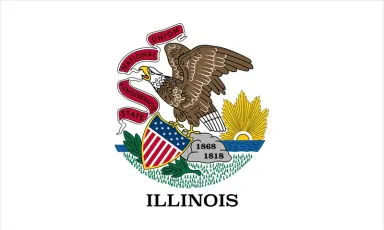Nevada Trucking Laws

Traffic accidents that involve commercial trucks can cause catastrophic consequences due to their weight and size. They can lead to severe damage, serious injuries, and death. In Nevada, 693 large truck crashes were recorded in 2021. These resulted in 43 deaths and 374 injuries, according to the Federal Motor Carrier Safety Administration.
To avoid the occurrence of accidents, including those involving trucks, and reduce the number of injuries and fatalities, the Nevada Office of Traffic Safety has implemented its 2023 Highway Safety Plan. It outlines the state’s strategies and goals to achieve zero fatalities by 2050 and focuses on nine critical areas to enhance Nevada’s roadways' safety from 2021 to 2025. The critical areas highlighted are safe speed, lane departures, intersections, pedestrians, motorcyclists, occupant protection, older and younger drivers, and impaired driving.
The 2023 Highway Safety Plan is complementary to the various traffic rules and regulations already being implemented in the state. Truck owners and drivers have their own set of guidelines to follow, and they will be penalized accordingly for their failure to comply.
If an accident occurs, victims should know they have legal rights, including, in particular, pursuing compensation for their losses and damages. An experienced lawyer can help them navigate the intricacies of the law, but a little knowledge and understanding may come in handy in the process.
Nevada Overweight and Oversize Law
In Nevada, truckers should follow size and load restrictions on the state’s roadways. However, truckers and trucking companies can secure a permit from the Nevada Department of Transportation if their vehicle or load goes beyond the limits.
For instance, the office would require a permit if they were driving a vehicle that exceeded 8.5 feet in width, 14 feet in height, and 70 feet in length. A special permit is also needed if the truck’s gross weight exceeds 80,000 pounds. Other weight limits include 20,000 pounds for single-axle vehicles, 34,000 pounds for tandem-axle vehicles, and 42,000 pounds for triple-axle vehicles.
Nevada Hours of Service Laws
Nevada imposes limitations on truckers’ hours of service. Truckers who drive more than the limits tend to experience fatigue and drowsiness, which may result in altered perceptions, lower inhibitions, reduced reaction times, impaired judgment, and limited awareness of the surroundings.
The HOS rules limit truckers to an 11-hour driving time in a 14-hour shift, 10 hours of off-duty period, and 30-minute breaks after driving for eight hours cumulatively. Furthermore, truckers cannot drive a total of 60 hours in a seven-day consecutive duty or a total of 70 hours in an eight-day consecutive duty. They should also have at least a 34-hour off-duty period before restarting their duty. During adverse weather conditions, truckers may extend their duty by two hours. They may also be exempt from the HOS regulations if they operate within a 150-air-mile radius and do not spend more than 14 hours on duty.
Truckers and trucking companies that violate the HOS law will have to pay fines that range from $1,000 to $16,000. If they are carrying hazardous substances, the fines can reach up to $75,000. The trucker will also be asked to stay at a rest stop or on the roadside for 10 to 34 hours.
Nevada Speeding Laws
The state’s basic speed law prohibits any person, including truck drivers, from operating a vehicle at:
A speed greater than what is reasonable considering the traffic, the road’s surface and width, and highway conditions
A speed that endangers a person’s life, limb, or property
A speed greater than the posted speed limit
A speed that results in the injury of another person or property
A speed of greater than 80 mph in any event
Below are the speed limits in Nevada:
15 mph in school zones
25 mph on business districts
30 mph on residential roads
65 mph on urban freeways and interstates
70 mph on undivided rural roads
70 mph on divided rural roads
75 mph on rural freeways and interstates
Speeding violations have their corresponding penalties:
First offense - classified as a misdemeanor punishable by a fine of $250 to $1,000 and/or imprisonment of up to six months
Second offense - classified as a misdemeanor punishable by a fine of $1,000 to $1,500 and/or imprisonment of up to six months
Third and subsequent offenses - classified as a misdemeanor punishable by a fine of $1,500 to $2,000 and/or imprisonment of up to six months
Nevada Reckless Driving Laws
In Nevada, reckless driving is defined as driving any motor vehicle in a manner that shows wanton disregard for the safety of persons or property, driving in an unauthorized speeding contest, unauthorized trick driving displays, and failing to yield to or evading a police officer.
Truckers who engage in reckless driving based on a wanton disregard for the safety of another person or any object may be charged with a misdemeanor offense. First-time offenders face $250 to $1,000 in fines and/or up to six months in jail. A second violation is punishable by $1,000 to $1,500 in fines and/or up to six months in jail, while a third violation is punishable by $1,500 to $2,000 in fines and/or up to six months in jail.
Nevada Drunk Driving Laws
Nevada's drunk driving law prohibits any person who is under the influence of drugs or alcohol from driving or operating a motor vehicle. It is also against the law for truck drivers to drive with a blood alcohol content of 0.04% or higher otherwise, they will be restricted from driving for 24 hours. Penalties for violating the state’s drunk driving law range from $400 to $5,000 in fines and two days to 15 years of imprisonment.
If a drunk truck driver hits you, you should call the police and let them determine whether the other driver was intoxicated. Seek medical attention if necessary. Document the accident scene by taking photos of both vehicles and other factors that may have contributed to the accident, such as skid marks on the road. Try to obtain information from the witnesses. It is also important to contact a truck accident lawyer to help you with your case.
Nevada Distracted Driving Laws
Nevada law prohibits texting, accessing the internet, and using a hand-held cell phone while operating any motor vehicle. Truckers who violate the distracted driving law face a $50 fine for the first offense, $100 for the second offense, and $250 for the third and subsequent offenses. Fines are doubled when the distracted driving offense is committed in a work zone.
If you are injured in a distracted driving accident, you are entitled to seek compensation against the negligent party. With the assistance of a knowledgeable truck accident lawyer, it could be easier to obtain the full amount of compensation you are entitled to. The attorney may help you acquire the necessary records regarding your injuries, look over the specifics of the truck accident, gather and analyze the evidence, and negotiate with the defense lawyer or the insurance company.
Nevada Commercial Trucking Insurance Requirements
Nevada law requires every operator of a combination of vehicles operated in the state to procure and be covered by a policy of liability insurance that has limits for personal injury of at least $100,000 per person and $300,000 per accident and limits for damage to property of at least $50,000.
Truckers and trucking companies should also carry primary liability insurance coverage depending on the type of freight they haul:
$750,000 - for-hire interstate general freight carriers
$1 million - for-hire and private carriers of oil and certain types of hazardous wastes
$1 million - for-hire passenger carriers with a seating capacity of 15 or less
$5 million - for-hire passenger carriers with a seating capacity of more than 15
$5 million - for-hire and private carriers of other hazardous substances
Other insurance requirements include cargo insurance of $5,000 per vehicle or $10,000 per occurrence and a surety bond or trust fund agreement of $75,000.
The above-mentioned amounts might not always be sufficient to pay for damages in an accident. The following are additional insurance options available to trucking companies:
General liability - covers risks outside of operating a truck, including wrong deliveries and slip-and-fall accidents in the office. Most policies start at $300,000, and the most common limits are $1 million per occurrence with a $2 million aggregate.
Physical damage - includes collision and comprehensive coverages. Insurance premiums normally cost between $2 and $3 per month per thousand of the truck’s value.
Motor truck cargo - covers different types of cargo losses, such as stolen goods, loss of freight charges, and water-damaged cargo. The insurance premium ranges from $400 to $1,00 per year, and the policy limits range from $50,000 to $250,000.
Bobtail insurance - pays for property damages or injuries while the trailer is detached from the truck.
Non-trucking liability - pays for property damage or injuries while the truck is not used for business purposes.
Trailer interchange - ranges from $10,000 to $30,000 (with a $1,000 deductible) and covers trailers against physical damage during loading and unloading.
Medical payments - pay for individuals riding or driving the truck with the owner’s consent.
Uninsured/Underinsured motorist coverage - pays for damages caused by another driver who is uninsured or underinsured.
Workers’ compensation - ranges from $4,560 to $8,550 per year and pays for injuries sustained by the company’s truck drivers who are injured while performing their job.
Trucking umbrella insurance - can be obtained in $1 million increments. It covers gaps between your other policies.
How Much Can Someone Sue for a Truck Accident in Nevada
The settlement amount may vary based on economic, non-economic, and punitive damages. A person injured in a truck accident due to someone else’s negligence should hire an experienced truck accident lawyer to determine the maximum compensation they deserve.
Economic Damages
Economic damages represent the plaintiff’s financial losses related to their accident, including future anticipated losses. These include medical-related costs, such as hospital bills, ambulance rides, outpatient visits, rehabilitation bills, and medications. Other monetary damages are lost wages and future earnings and employment opportunities.
Non-Economic Damages
Non-economic damages refer to compensation for non-monetary losses or subjective effects of an accident. These may include pain and suffering, inconvenience, physical impairment, and disfigurement. Lawyers also use the following common methods for computing non-economic damages:
Multiplier method - the amount is calculated by multiplying economic damages by a whole number. This method assigns a higher number to injuries that are more serious and need longer recovery time.
Per diem method - the amount is determined by multiplying the victim’s daily salary or per-day cost by the number of days until the victim recovers from his or her injuries.
Punitive Damages
Punitive damages are intended to punish or make an example of the defendant for their intentional misconduct. It may be awarded by the judge or a jury if it is proven that the truck driver willfully consumed alcohol or used controlled substances and later caused injuries while operating the truck.
The limits on punitive damages that can be awarded to the plaintiff are as follows:
The amount of compensatory damages is $100,000 or more - the punitive damage is up to three times the compensatory damages
The amount of compensatory damages is less than $100,000 - the punitive damage is up to $300,000.
Nevada Statute of Limitations for Truck Accidents
Nevada’s statute of limitations for truck accidents is two years. This means the plaintiff should file a claim within two years of the date of the accident. For instance, if you get injured in a truck accident on January 15, 2021, the deadline to file a lawsuit would be January 15, 2023.
If the victim is a minor, the clock begins when he or she turns 18. If the defendant is out of the state or has left the country, the statute of limitations is tolled until he returns to Nevada. In other cases, the statute of limitations may be extended to three years from the date of the accident if the injury was not discovered immediately.
Nevada Is an At-Fault State for Insurance Claims
Nevada is a fault state for insurance claims. This means that the person who caused the injuries in a truck accident is liable for the victim’s damages. Insurance companies in Nevada have 80 working days to settle a claim once it has been filed. It usually takes 20 working days to acknowledge the claim and send the paperwork; 30 working days to decide; and 30 working days to make the final payment. Victims should never accept a settlement right away. They are advised to consult an experienced trucking accident lawyer to ensure that they will get the maximum compensation that they rightfully deserve.
Nevada Is a Modified Comparative Fault State for Trucking Accident Lawsuits
Nevada follows a modified comparative fault system, also known as the 51% rule, in determining liability in truck accident cases. Under this system, the judge or jury assigns a percentage of fault to each party involved in the accident based on their respective contributions to the accident. Even if the plaintiff is partially at fault for the accident, he or she may still recover damages from other parties based on his or her percentage of fault. The 51% rule means that plaintiffs may only recover damages if their fault is 50% or less. If their fault is 51% or more, they are barred from obtaining any damages.
For example, if a truck accident case goes to trial and the court determines that the plaintiff suffered $100,000 in damages and is 20% at fault, he can recover $80,000. However, if the plaintiff is 60% at fault, then he will not receive any compensation at all.
Average Settlement for Nevada Trucking Accident Lawsuits
Since no two incidents are the same, it is difficult to determine the typical truck accident settlement and verdict. But one thing is for sure: the damage a truck may inflict in a crash can be catastrophic due to its enormous size and weight.
Typically, settlement amounts are based on several factors, including the severity of injuries and the pieces of evidence presented. There may also be multiple parties involved in or responsible for the accident, namely:
The truck driver
The truck company - hiring incompetent drivers or failure to properly train their drivers
The cargo loading company - improper loading or overloading
The maintenance team - dereliction of duty to notice the faulty truck parts
The truck manufacturer - faulty design or defective parts that caused equipment failure
Legal Resources for Nevada Trucking Accident Victims
Nevada Commercial Driver License Manual
The Nevada Commercial Driver License Manual discusses the state’s traffic laws and safe driving information. It also outlines instructions on how to acquire a commercial driver’s license and operate a CMV.
Nevada State Police Highway Patrol
The official website of the Nevada State Police Highway Patrol provides information on how to obtain crash reports. It also gives details about its regional offices.
Nevada Division of Insurance
The Nevada Division of Insurance is responsible for setting ethical and financial standards for insurance companies and reviewing rates. Citizens can also file a complaint if they have trouble resolving issues with their insurance companies. Additionally, they can verify the licenses of insurance companies, agencies, or agents using this portal.
Nevada Department of Motor Vehicles
The Nevada Department of Motor Vehicles outlines the important traffic laws in the state and provides safety resources. It also offers online services, such as vehicle registration, driver test scheduling, and driver’s license renewal.
Expertise.com StaffAuthor
Step into the world of Expertise.com, your go-to hub for credible insights. We don't take accuracy lightly around here. Our squad of expert reviewers, each a maestro in their field, has given the green light to every single article you'll find. From rigorous fact-checking to meticulous evaluations of service providers, we've got it all covered. So feel free to dive in and explore. The information you'll uncover has been stamped with the seal of approval by our top-notch experts.




